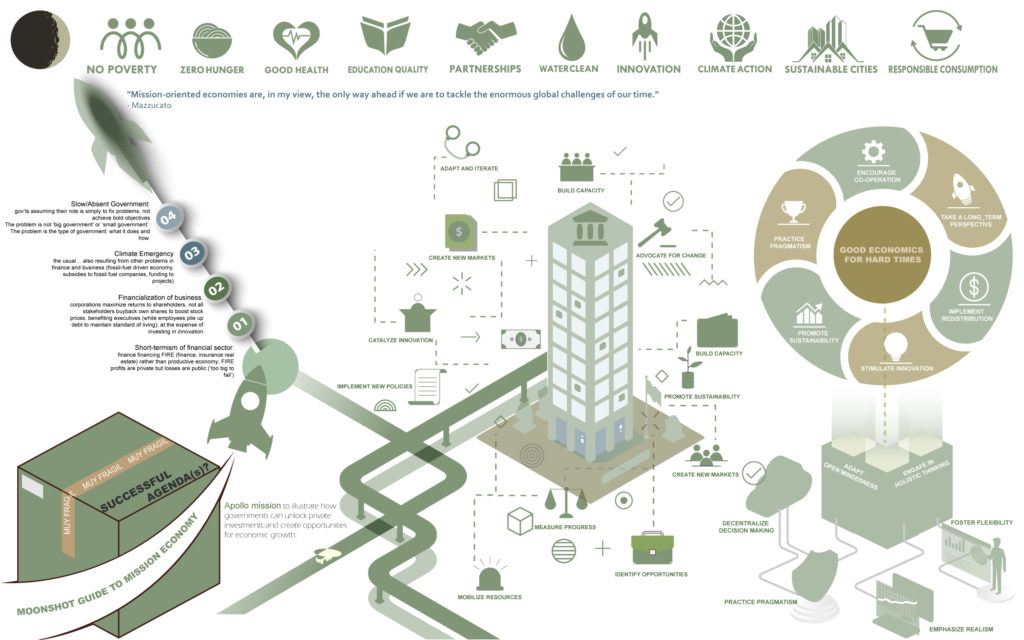This blog is a combined review of the two books, 1. Mission Economy by Mariana Mazzucato and 2. Good Economics for Hard Times by Abhijit Banerjee, Esther Duflo.
–
“On many weighty matters, economists and everyday people disagree”
–
“Public sector leaders and managers are not really taught or
encouraged to think outside the box,
and many private sector companies are perfectly happy with the status quo.”
How can we change this?
–
Mission Economy by Mariana Mazzucato and Good Economics for Hard Times by Abhijit V. Banerjee and Esther Duflo are two books that explore the role of government in addressing complex social and economic challenges. In particular, they discuss creating an economy that delivers sustainable and inclusive growth, rather than simply focusing on short-term profits.
In Mission Economy, Mazzucato argues that government should play an active role in guiding innovation and investment toward areas of public interest, such as climate change, healthcare, and education. She argues that this approach will not only address pressing societal issues but will also create new growth opportunities and boost productivity. Mazzucato advocates for a mission-oriented approach that aligns diverse actors toward shared goals and taps into the creativity and ingenuity of a variety of stakeholders.
Good Economics for Hard Times, on the other hand, explores how to address our time’s political and economic challenges, such as rising inequality, the erosion of trust in government, and the effects of globalization. The authors, both Nobel laureates, argue that we need to rethink our assumptions and prioritize evidence-based policy solutions over ideology. They advocate for a rigorous and nuanced approach to understanding complex issues, grounded in empirical research.

Diagram source: Indraneel Joshi
These books provide a compelling case for a new approach to economic development and policymaking. They emphasize the importance of collaboration and creative problem-solving and highlight the need for a more inclusive and sustainable economy. While they come at the topic from different angles, both authors share a focus on evidence-based policies that can deliver real-world impact.
Overall, the ideas presented in these books are highly relevant to our current socioeconomic climate, where many pressing issues require urgent attention. By advocating for mission orientation and evidence-based policymaking, Mazzucato and Banerjee and Duflo present a compelling vision for cultivating collaborative, innovative solutions to complex problems.
Reference links to learn more about the authors and the books:
https://www.goodeconomicsforhardtimes.com
https://www.povertyactionlab.org
https://marianamazzucato.com
https://www.ucl.ac.uk/bartlett/public-purpose
https://op.europa.eu/en/publication-detail/-/publication/5b2811d1-16be-11e8-9253-01aa75ed71a1/language-en

